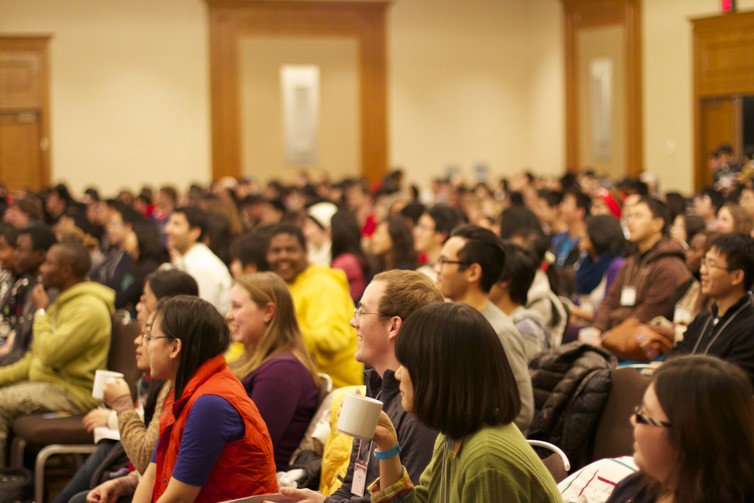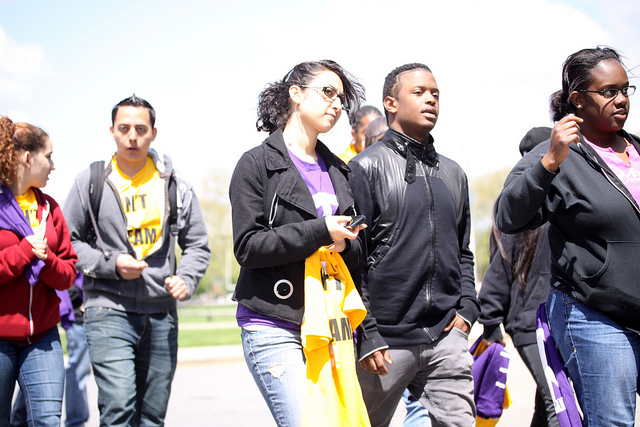Are some students more at risk of assault on campuses?

Leah Daigle, Georgia State University
When students come to pursue their educational interests, they believe they are entering a safe environment. But while colleges are thought of as “ivory towers,” they can also be places where students could become victims of a crime.
In my research on victims of crime, I have found that particular types of students are more exposed to risks in a college environment. The risks are often tied to the party culture endemic on college campuses, where alcohol consumption is a major feature.
Who is on campus
Often these students choose to enroll in universities in the U.S. for a quality education or to be able to pursue the major and career path of their choice.
For almost all young people, this is the first time that they are away from home, responsible for themselves, without adult supervision and an abundance of unstructured time. Part of college culture involves spending time at parties and bars, recreational drug use and engaging in other risky behaviors (e.g., binge drinking, hooking up).

Alcohol consumption exposes students to risks.COD Newsroom, CC BY
Alcohol consumption becomes a major feature of such activities. Data indicate that about 65 percent of college students consume alcohol in a given month, and less than half of college students engage in binge drinking.
Research shows that such behaviors increase the likelihood of being a crime victim.
Drinking alcohol can increase the chances of being a crime victim because alcohol use impairs judgment and perception, decreases the ability to recognize and react to risk, impairs decision-making and delays reaction time.
Are all college students at risk?
Research shows about a third of college students could be victims of a crime during a given year. However, the risks could be different for different ethnic and racial groups on campus.
For example, there could be a higher risk for some groups such as non-Hispanic white men. This group faces the highest risk – most likely a result of participation in the party culture. White, male college students drink alcohol at greater levels and engage in more risky drinking than do female or African-American college students.
But there is a small percentage of international students who come to American campuses as well. In 2015, there were 1.13 million international college students enrolled in the U.S., with the largest percentage coming from China.
What is the risk international students face of being a victim?

International students face lower risks of assault. IFES – International Fellowship of Evangelical Students Follow, CC BY-NC
Our research explored this possibility, given that international students may have unique experiences before and while attending college in the U.S.
Our study used data from the Fall 2012 American College Health Association’s National College Health Assessment II. This study is a national survey of college students that is done in the fall and spring. Our study sample included 26,012 students, 8.6 percent of whom were international students.
We found that overall, when asked about their experiences from the previous 12 months, international students were less likely to be “violently victimized” – that is, physically assaulted and/or verbally threatened – compared to domestic students. A physical assault might include being hit, punched, kicked, bitten or even shot, while a verbal threat might be experienced when a person is told that he or she is going to get beaten up or is going to be shot.
Nineteen percent of domestic students in our study indicated that they had been physically assaulted or verbally threatened, compared to 17 percent of international students.
Female international students are safer?
Subsequently, we looked at differences in risk for male and female international college students. We found that male international students were less likely to be victims of a crime, and so were international female students.
Our study found 22 percent of male international students had been assaulted or threatened, compared with 26 percent of male domestic students. Fourteen percent of female international students had been assaulted or threatened, while 16 percent of female domestic students faced these experiences.
These differences may seem small, and in magnitude, they are. But, we used a large sample of over 26,000 students, which leads us to feel confident that our findings are unlikely to be a result of a problem with our sample. Also, when you consider how many students attend college, a two percent difference (such as what we found between female international students and female domestic students in their risk) could be tens or hundreds of thousands of students.
In an additional set of analyses, we included other factors that previous research has shown to be related to risk on campus, such as alcohol consumption and being a first-year college student. We found that female international students faced fewer risks than did female domestic students. In fact, female international students’ odds of being harmed were 14 percent lower than female domestic students.
And why might this be the case? We found that female international students tended to have a less risky profile than their domestic student counterparts – they binge-drank less, were less likely to use drugs, were less likely to be a first-year undergraduate and were less likely to have a disability.
While there are still some unanswered questions, we believe there must be something unique about how female international students experience college. It is possible that female international students may not be fully engaging in college life. It is possible they might be under increased levels of guardianship or they may experience culture conflict.
Colleges should work to ensure that international students are a thriving part of the campus community while ensuring that they remain safe. Colleges should also provide culturally sensitive victim responses to international students.
![]()
Leah Daigle, Associate Professor of Criminal Justice and Criminology, Georgia State University
This article was originally published on The Conversation. Read the original article.



